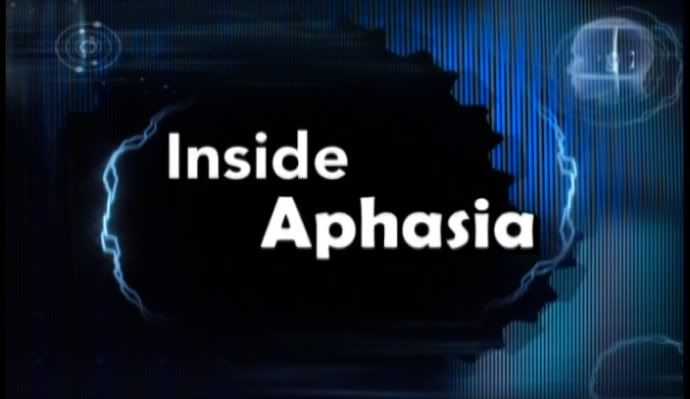
The Aphasia Hope Foundation was found in 1997. It was formed by a personal experience and the association with caregivers of individuals diagnosed with aphasia. The group consulted many professional individuals to try ad obtain information on aphasia, but found it very difficult. After countless hours researching, the Aphasia Hope Foundation was formed. It allows individuals that are diagnosed with aphasia to learn about the resources available to them. The article then goes on to inform us of the accomplishments that have been met by the Aphasia Hope Foundation. This foundation is fully supportive of helping and trying to find a cure for Aphasia.
 According to the National Institute of Neurological Disorders and Stroke aphasia is defined as, neurological disorder caused by damage to the portions of the brain that are responsible for language. Aphasia is most commonly divided into four distinctive categories, which are the most common types of aphasia. Those include expressive aphasia, which involved the difficulty to speak to to write, receptive aphasia, the difficulty to understand, anomic aphasia, which is the least severe type and it makes your body not recognize simple objects and names, and finally global aphasia, which results in severe damage to the language portions of your brain. The website also informs us that there are many studies being conducted to better understand individuals with aphasia and how their bodies react to the disorder.
According to the National Institute of Neurological Disorders and Stroke aphasia is defined as, neurological disorder caused by damage to the portions of the brain that are responsible for language. Aphasia is most commonly divided into four distinctive categories, which are the most common types of aphasia. Those include expressive aphasia, which involved the difficulty to speak to to write, receptive aphasia, the difficulty to understand, anomic aphasia, which is the least severe type and it makes your body not recognize simple objects and names, and finally global aphasia, which results in severe damage to the language portions of your brain. The website also informs us that there are many studies being conducted to better understand individuals with aphasia and how their bodies react to the disorder.
 We learn in the web link below that Aphasia is a impairment of speech causing you to have difficulty in reading and writing. Aphasia comes from a brain injury, for older individuals it usually comes from strokes. Individuals with aphasia can have very mild cases, but they can also have a severe case. Aphasia most commonly affects one particular point within your body, for example, the ability to put your words into a complete sentence. There are many different types of aphasia. The most common type is Global Aphasia. These individuals can not read nor write. We also learn that there are other disorders that are mistaken for aphasia. More than 1 million people within in the United States are diagnosed with aphasia, and it can be found in all races, ages, and sex. Aphasia can be temporary for an individual, although there is no cure for the disorder, and no known ways to prevent aphasia.
We learn in the web link below that Aphasia is a impairment of speech causing you to have difficulty in reading and writing. Aphasia comes from a brain injury, for older individuals it usually comes from strokes. Individuals with aphasia can have very mild cases, but they can also have a severe case. Aphasia most commonly affects one particular point within your body, for example, the ability to put your words into a complete sentence. There are many different types of aphasia. The most common type is Global Aphasia. These individuals can not read nor write. We also learn that there are other disorders that are mistaken for aphasia. More than 1 million people within in the United States are diagnosed with aphasia, and it can be found in all races, ages, and sex. Aphasia can be temporary for an individual, although there is no cure for the disorder, and no known ways to prevent aphasia.



